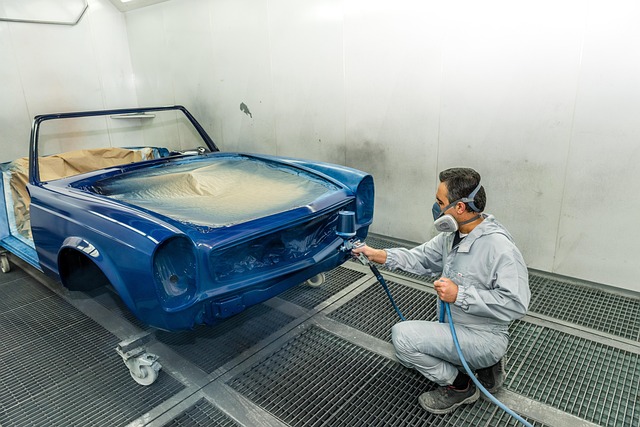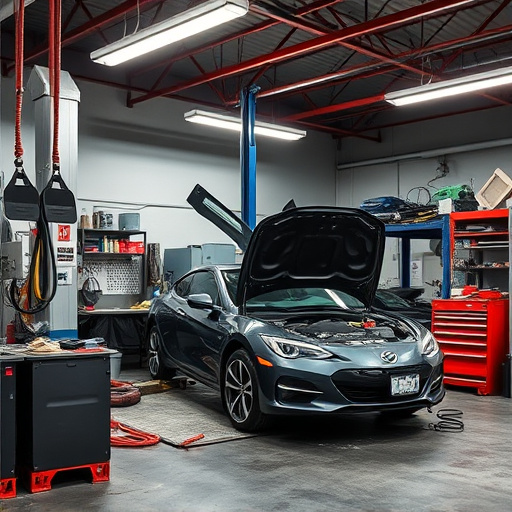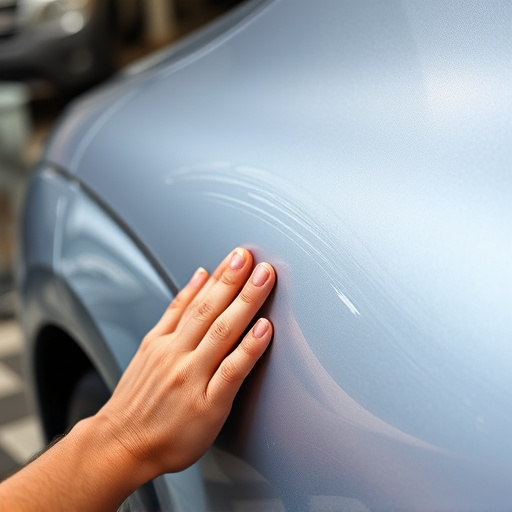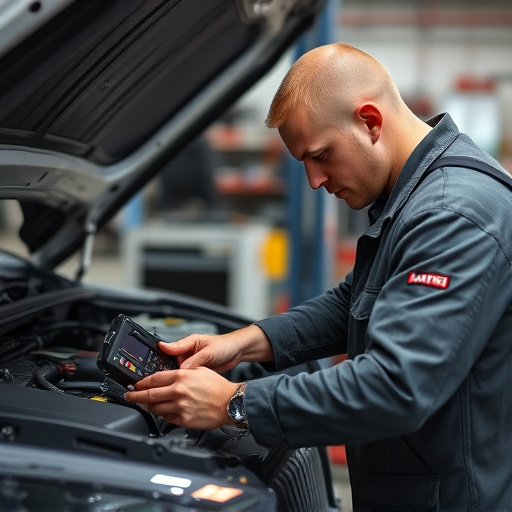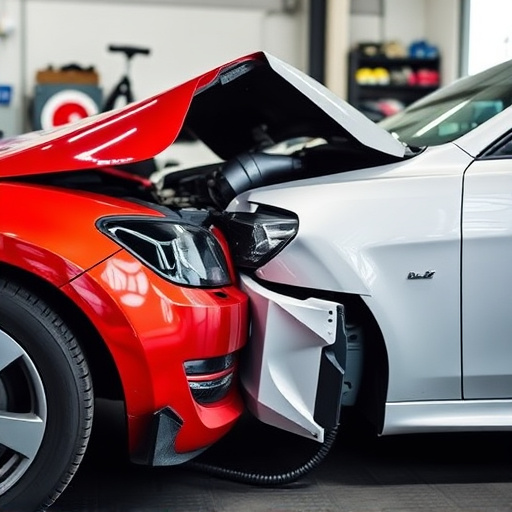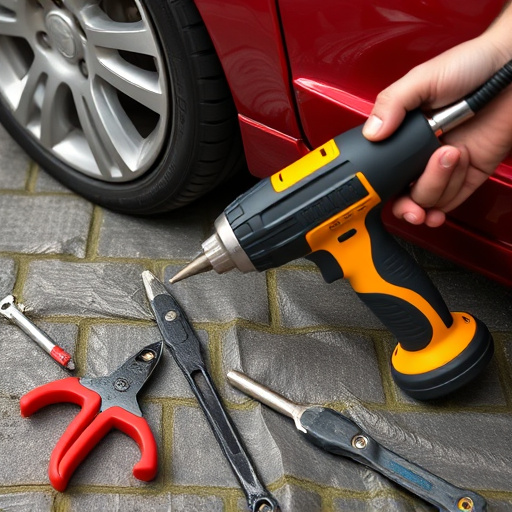An EPA compliant body shop adheres to strict environmental standards by investing in specialized equipment and efficient waste management practices, prioritizing ecological integrity and employee safety. They go above and beyond with eco-friendly operations, minimizing waste, conserving resources, and using recycled materials, attracting environmentally conscious customers. Through rigorous testing and certification, they ensure adherence to regulations on VOCs, waste disposal, and non-toxic substances, delivering high-quality services while minimizing ecological impact.
In today’s environmentally conscious world, an EPA compliant body shop is more than just a business; it’s a beacon of responsible practices. This article delves into the crucial aspects that define these shops’ commitment to safety and sustainability. We explore how understanding and adhering to EPA standards, implementing eco-friendly daily operations, and strict testing & certification procedures foster a culture of environmental stewardship. Discover how these measures not only benefit the planet but also enhance the reputation of an EPA compliant body shop.
- Understanding EPA Standards for Body Shops
- Implementing Eco-Friendly Practices in Daily Operations
- Strict Testing and Certification Procedures for Environmental Compliance
Understanding EPA Standards for Body Shops
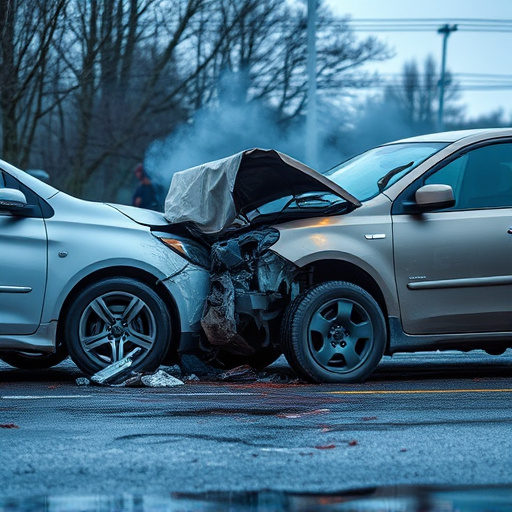
The Environmental Protection Agency (EPA) sets stringent standards for auto body shops to ensure environmental safety throughout the entire automotive collision repair process. These regulations are in place to minimize the release of harmful chemicals, pollutants, and waste into the air, water, and soil. An EPA-compliant body shop must follow strict protocols for managing hazardous materials, controlling emissions, and properly disposing of waste to prevent ecological damage.
For an auto body shop or automotive collision center to achieve EPA compliance, they need to invest in specialized equipment and training for their staff. This includes proper containment systems for painting and sanding areas, filtration mechanisms to capture volatile organic compounds (VOCs), and efficient waste management practices. By adhering to these standards, an EPA-compliant body shop not only protects the environment but also ensures a safer working condition for its employees, fostering a sustainable future while delivering high-quality automotive collision repair services.
Implementing Eco-Friendly Practices in Daily Operations

An EPA compliant body shop goes beyond meeting minimum environmental regulations by actively integrating eco-friendly practices into its daily operations. This involves a commitment to reduce waste, conserve resources, and minimize pollution at every stage of their work. For instance, using water-based paints and solvents that are less harmful to the environment is a common practice. Many EPA compliant body shops also invest in energy-efficient equipment, such as LED lighting and eco-friendly heating systems, to lower their carbon footprint.
In addition to these measures, tire services and dent repair processes are often optimized for sustainability. Shops may employ recycling programs for used tires and automotive parts, ensuring that waste is properly managed and reused whenever possible. They might also use recycled materials for certain repairs and components, further reducing the environmental impact of their operations. These practices not only contribute to a cleaner environment but also reflect the commitment of the body shop to provide quality services while prioritizing sustainability, making it a responsible choice for eco-conscious customers.
Strict Testing and Certification Procedures for Environmental Compliance
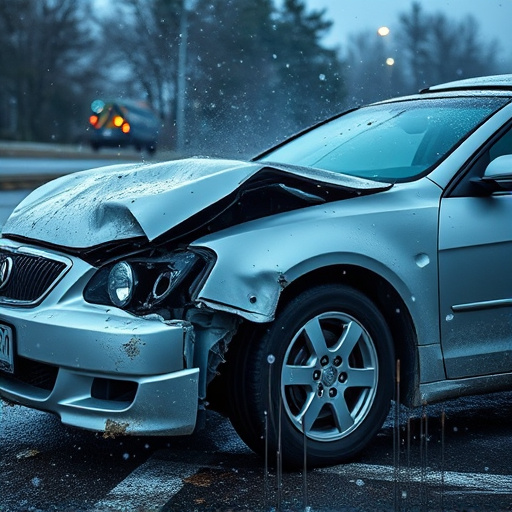
At an EPA compliant body shop, environmental safety is no afterthought—it’s integrated into every step of the operation. To achieve this, stringent testing and certification procedures are rigorously followed. These include regular assessments for volatile organic compounds (VOCs) and other harmful emissions, ensuring that only eco-friendly materials and processes are employed in dent repair and collision repair center operations.
Automotive body shops that adhere to EPA guidelines undergo meticulous inspections to verify their adherence to environmental protection standards. This involves rigorous testing of waste disposal methods, air quality control systems, and the use of safe, non-toxic substances throughout the entire process—from initial assessment to final paint application and vehicle reconditioning. These protocols are crucial in minimizing ecological impact while delivering high-quality dent repair services.
An EPA compliant body shop isn’t just a business; it’s a responsible steward of our environment. By understanding and adhering to stringent EPA standards, implementing eco-friendly practices in daily operations, and undergoing rigorous testing and certification procedures, these shops play a vital role in minimizing their ecological footprint. This commitment ensures not only the safety of vehicles but also the preservation of our planet for future generations.
